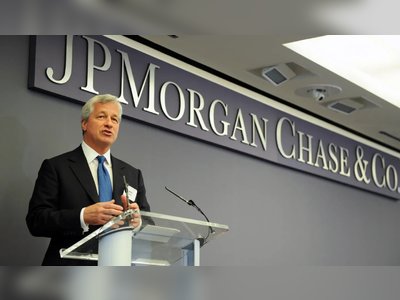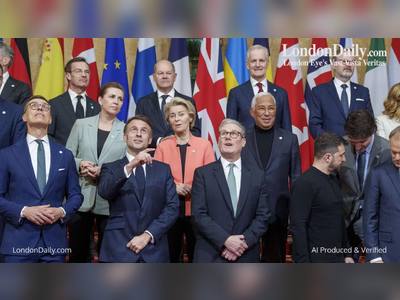French Political Turmoil Elevates Marine Le Pen as Rassemblement National Poised for Power
Triple prime ministerial collapse and parliamentary paralysis open the door for Le Pen’s far-right party as a stabilising force
France’s political machinery is in freefall.
Within just months, three prime ministers have resigned amid legislative gridlock and unworkable coalitions.
The most recent, Sébastien Lecornu, stepped down mere hours after naming his cabinet, following pressure from both centre-right allies and the parliamentary opposition.
With no governing majority and yawning divisions across blocs, President Emmanuel Macron is now expected to appoint a successor within forty-eight hours—delicately navigating calls for a full dissolution of the National Assembly while avoiding a repeat electoral deadlock.
In this political vacuum, Marine Le Pen and her Rassemblement National (RN) have emerged as the clearest beneficiaries.
The RN is projecting itself as the only coherent alternative to chronic instability—urging Macron to call snap parliamentary elections and casting every impeding government as proof that the existing system is broken.
Internal opinion polls confirm that RN is now France’s most popular party, holding solid voter support despite Le Pen’s own legal constraints.
Le Pen remains barred from holding public office for five years following her conviction in March for embezzling funds intended for European Parliament assistants, a judgment she denounced as a “political decision”.
That ruling excludes her from the 2027 presidential contest, though she continues to act as RN’s parliamentary leader and remains an influential presence in French politics.
Meanwhile, Jordan Bardella, RN’s party president, is being groomed as its prime ministerial candidate and potential future figurehead—carefully vetted and aligned to broaden the party’s appeal beyond its hardline roots.
The RN is also recalibrating its economic tone, downplaying radical stances, and seeking to reassure business interests and moderates.
Some analysts now foresee a realignment of conservative forces around RN, recalling shifts in Italy under Giorgia Meloni.
Meanwhile, mainstream parties scramble for coalitions, but their repeated failures only reinforce RN’s narrative that France’s establishment is frayed.
With Macron reluctant to call new elections while still in office, the incoming prime minister may become little more than a caretaker—further strengthening the RN’s argument that France needs a clean break.
The months ahead will test whether RN can convert its political momentum into governing authority—or whether France’s fractious system will resist yet another upheaval.
Within just months, three prime ministers have resigned amid legislative gridlock and unworkable coalitions.
The most recent, Sébastien Lecornu, stepped down mere hours after naming his cabinet, following pressure from both centre-right allies and the parliamentary opposition.
With no governing majority and yawning divisions across blocs, President Emmanuel Macron is now expected to appoint a successor within forty-eight hours—delicately navigating calls for a full dissolution of the National Assembly while avoiding a repeat electoral deadlock.
In this political vacuum, Marine Le Pen and her Rassemblement National (RN) have emerged as the clearest beneficiaries.
The RN is projecting itself as the only coherent alternative to chronic instability—urging Macron to call snap parliamentary elections and casting every impeding government as proof that the existing system is broken.
Internal opinion polls confirm that RN is now France’s most popular party, holding solid voter support despite Le Pen’s own legal constraints.
Le Pen remains barred from holding public office for five years following her conviction in March for embezzling funds intended for European Parliament assistants, a judgment she denounced as a “political decision”.
That ruling excludes her from the 2027 presidential contest, though she continues to act as RN’s parliamentary leader and remains an influential presence in French politics.
Meanwhile, Jordan Bardella, RN’s party president, is being groomed as its prime ministerial candidate and potential future figurehead—carefully vetted and aligned to broaden the party’s appeal beyond its hardline roots.
The RN is also recalibrating its economic tone, downplaying radical stances, and seeking to reassure business interests and moderates.
Some analysts now foresee a realignment of conservative forces around RN, recalling shifts in Italy under Giorgia Meloni.
Meanwhile, mainstream parties scramble for coalitions, but their repeated failures only reinforce RN’s narrative that France’s establishment is frayed.
With Macron reluctant to call new elections while still in office, the incoming prime minister may become little more than a caretaker—further strengthening the RN’s argument that France needs a clean break.
The months ahead will test whether RN can convert its political momentum into governing authority—or whether France’s fractious system will resist yet another upheaval.










